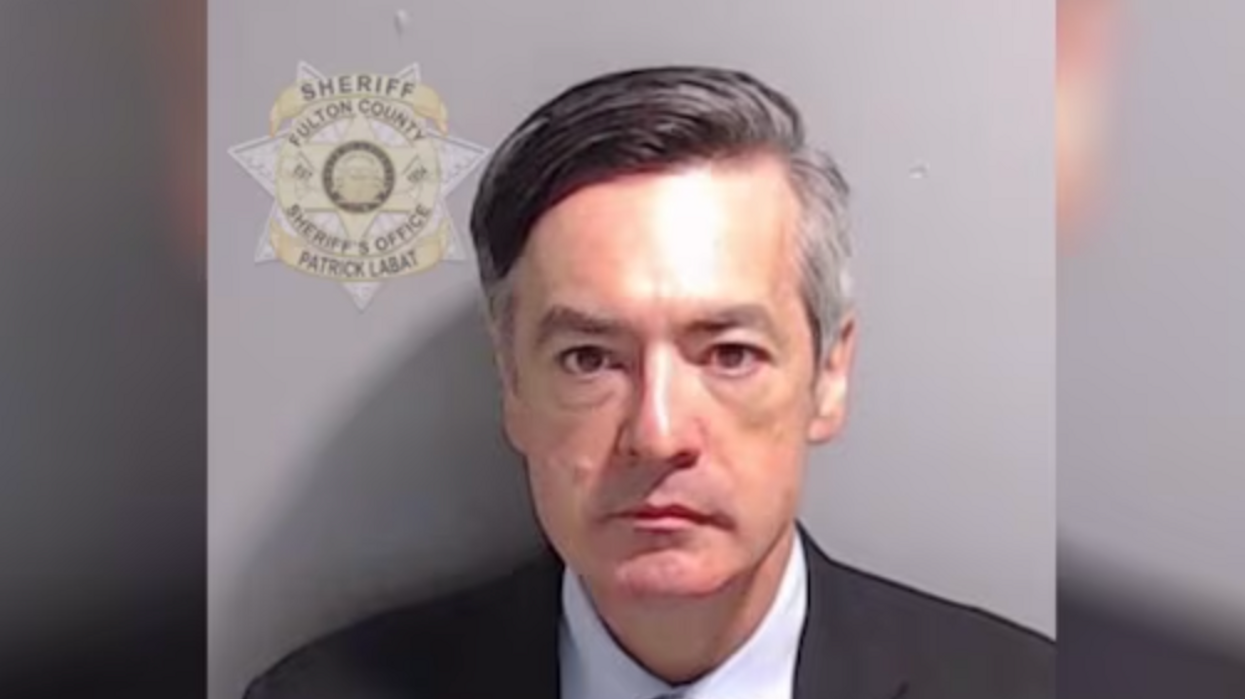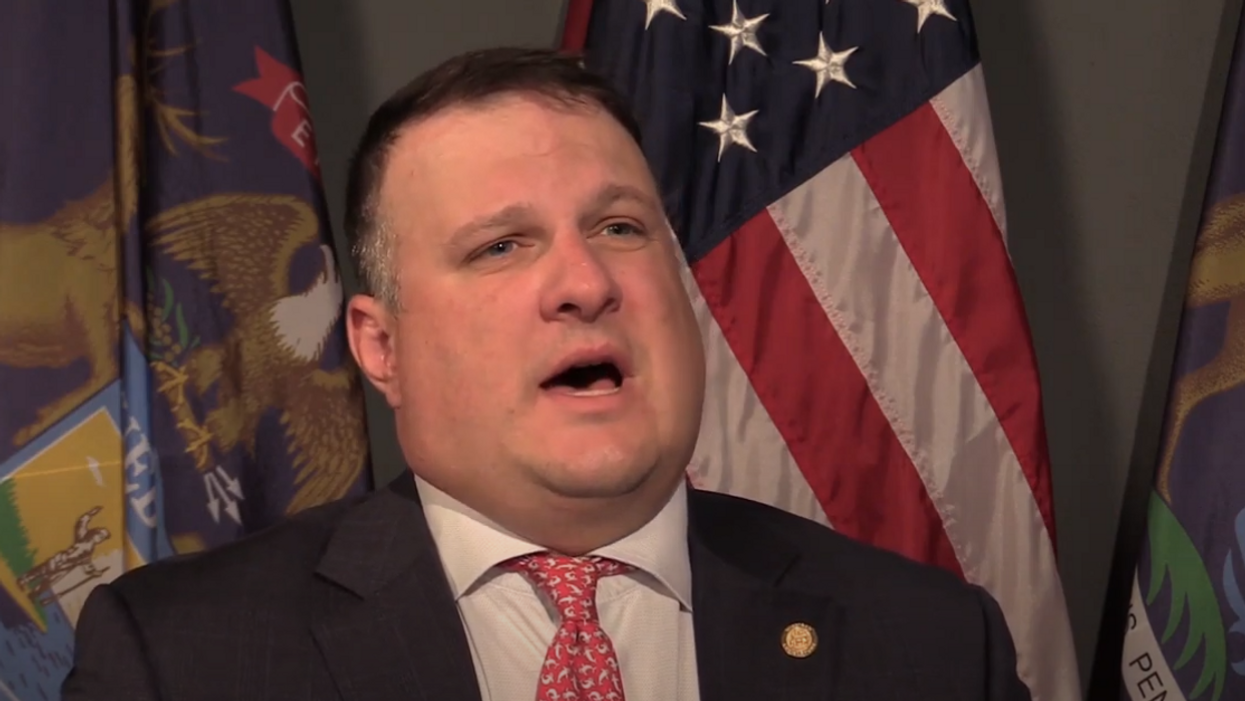Michigan GOP Senate Candidate Exposed -- As Resident Of Florida
Former Rep. Mike Rogers (R-MI) is running in the Republican US Senate primary on his longtime relationship with the Mitten State and his local roots. But a staffer for his Democratic rival just unearthed evidence showing his ties to a state decidedly much further away from his target constituency.
In a Monday tweet, Rogers — who represented Michigan's Eighth Congressional District between 2001 and 2015 — wrote, "I'm proud to be born and raised right here in Michigan. And I will be proud to serve my home in the US Senate." This prompted Austin Cook, the communications director for Democratic US Senate candidate Rep. Elissa Slotkin (D-MI), to tweet a screenshot of Rogers' voter registration record that shows a Florida ZIP code and a voter status of "active."
"Fun fact: @MikeRogersForMI is literally registered to vote in Florida right now," Cook wrote, tagging Rogers' official campaign account.
According to Newsweek, Rogers is currently living at his sister-in-law's home in Brighton, Michigan while a home he bought in West Lake Township is undergoing renovations. Michigan Advance reported that Rogers' official residence was a home in Cape Coral, Florida prior to him announcing his candidacy for the US Senate.
The Constitution dictates that in order to run for US Senate, a candidate must be a US citizen for at least nine years, be at least 30 years old, and be a legal resident of the state they seek to represent at the time of election. This means that even as a current Florida resident, Rogers could still represent Michigan in the US Senate if his residency in the Mitten State is established prior to the first Tuesday in November. Being a registered voter at his West Lake Township home would ostensibly meet the Constitution's residency requirements.
However, proving his authentic status as a Michigander may be more difficult to do between now and the time voters cast their ballots if Rogers was indeed a full-time Florida resident until recently. A 4,751 square-foot five-bedroom, four-bathroom house in Cape Coral valued on Zillow at nearly $1.7 million matches the address shown on Rogers' voter registration in Florida. And according to Lee County, Florida property assessment records, that home is in the name of Rogers, his wife, and their family trust. Rogers has not yet publicly clarified whether he is still a full-time Florida resident, which is required to be an actively registered voter in the Sunshine State.
Determining whether Rogers claimed the Cape Coral home as his primary residence could be confirmed by flood insurance claim records. Cape Coral was in the direct path of Hurricane Ian in 2022, which was Florida's most costly storm in history. Ian was also the third-costliest storm in US history according to the National Hurricane Center, causing more than 150 direct and indirect deaths and more than $112 billion in total property damage.
The National Flood Insurance Program (NFIP), which is the federal program that underwrites all flood insurance claims in the US, pays replacement cash value (RCV) in claims where the affected property is the insured's principal residence. In cases where a home is a secondary residence, the NFIP instead pays actual cash value (ACV), which is a lesser amount. If Rogers qualified for an RCV claim, that would mean he told the federal government that the Cape Coral house was his principal residence at the time of the flood.
AlterNet has reached out to the Rogers campaign via email to see if his Cape Coral home was damaged by Hurricane Ian, and if it was, if the adjuster assigned to his claim recommended an ACV or RCV payment. This article will be updated in the event Rogers' campaign responds.
Rogers has been endorsed by former President Donald Trump in the Michigan US Senate Republican primary. He's running against Peter Meijer, a scion of the wealthy Meijer family known for their nationwide grocery store chain. Meijer notably voted to impeach Trump following the January 6, 2021 attack on the US Capitol, though he has since softened his tone in regard to the former president.
Reprinted with permission from Alternet.




